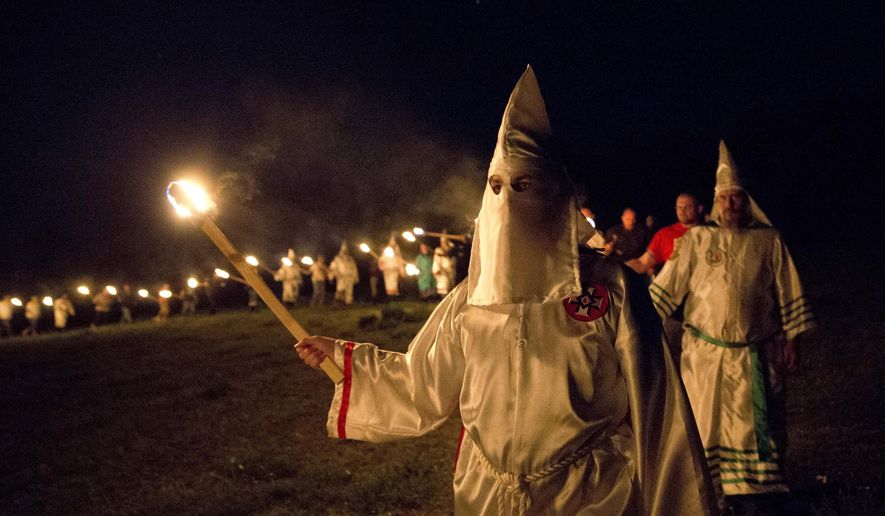Vermont’s highest court is currently considering whether a person’s right to distribute Ku Klux Klan recruitment files is constitutionally protected.
The five justices of the Vermont Supreme Court heard oral arguments Wednesday concerning an appeal on behalf of William Schenk, a North Carolina man convicted of disorderly conduct last year for leaving KKK recruitment fliers at the residences of two minority women in Burlington and sentenced to 120 days behind bars.
Mr. Schenk’s four-month sentence was longer that the punishment typically handed down for disorderly conduct convictions because a Burlington trial court considered his actions a hate crime. Appealing before the state’s top court, Mr. Schenk’s attorney equated her client’s conduct as an act of free speech.
The fliers Mr. Schenk distributed consisted of an image of a robed Klansman riding on horseback alongside a burning cross and the slogan: “Join The Klan And Save Our Land!” According to his attorney, his actions were meant as a recruitment effort, not an intimidation tactic.
“This is not a threat under the First Amendment, this is core protected speech,” Rebecca Turner, his attorney from the state defender general’s office, said Wednesday, The Associated Press reported.
“The actual expressed message on the flier, was an invitation to join a group. There is no message of violence, generally, or violence specific to the people who received it,” Ms. Turner argued, the local NBC News affiliate reported.
Arguing in favor of the lower court’s ruling, however, an attorney for the state, Amiee Griffin, claimed that the Klan’s tactics are typically understood to be hateful acts.
“We know as a society, that the Ku Klux Klan’s methods of ’saving our land’ include egregious and violent acts toward minorities,” countered Deputy State’s Attorney Aimee Griffin, according to the NBC affiliate.
A trial court convicted Mr. Schenk last year after determining he violated his victims’ privacy by physically distributing fliers at their homes. He had been charged with two counts of disorderly conduct, enhanced by a hate crime penalty, and ultimately pleaded no contest.
Vermont’s high court did not indicate when or how they plan to rule, though any decision may potentially be appealed to the U.S. Supreme Court.
• Andrew Blake can be reached at ablake@washingtontimes.com.




Please read our comment policy before commenting.